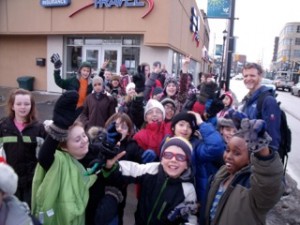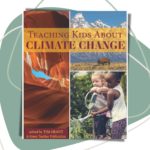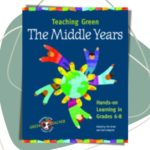Defending Place-based Education

Originally appears in the Fall 2012 issue
“Place-based education is the process of using the local community and environment as a starting point to teach concepts in language arts, mathematics, social studies, science, and other subjects across the curriculum. Emphasizing hands-on, real-world learning experiences, this approach to education increases academic achievement, helps students develop stronger ties to their communities, enhances students’ appreciation for the natural world, and creates a heightened commitment to serving as active, contributing citizens.” – David Sobel, 2004
Many educators often ask themselves how can they to school administrators and the parents of their students that there is tremendous value in getting those students out of the classroom and into the parks, streams, forests and commercial strips of their neighbourhoods – where the curriculum lives. According to the best studies on environmental inquiry and place-based education, it is significant gains in student achievement that proves its immeasurable impact.
Environmental education has long been thought of as yet another separate strand to be squeezed into the overwhelming number of curriculum expectations that students and teachers must cover every year. However, through discussion and debate in school staffrooms, faculties of education and most importantly, in classrooms, environmental education is now being defined as the big umbrella that connects all subject areas within a relevant and authentic context.
To view the photo-rich magazine version, click here.
If you are not already a subscriber, please subscribe to read the full article
Stephen Skoutajan is a teacher with the Ottawa-Carleton District School Board who lives in Ottawa, Ontario.
Leave a Reply
You must be logged in to post a comment.










